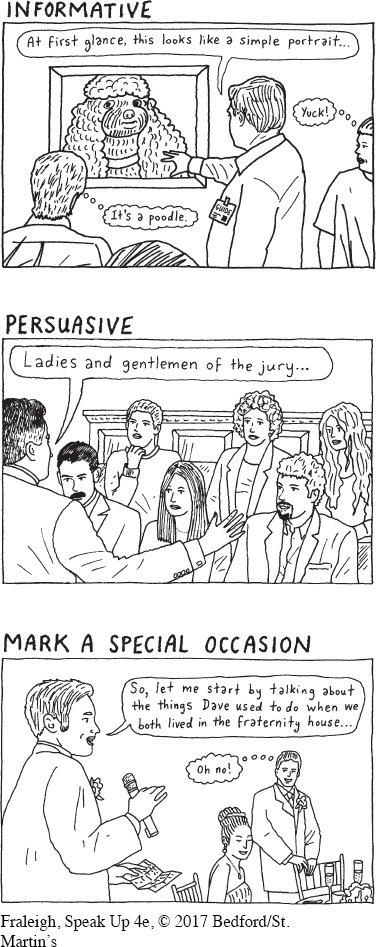Decide Your Rhetorical Purpose

Your intended effect on the audience constitutes your rhetorical purpose. In a public speaking class, your purpose often will be assigned for each speech. Outside the classroom, your purpose may be assigned (for example, by your employer) or dictated by the context of a special occasion (such as a wedding, memorial service, or roast). For other speeches, the choice of purpose will be left to you. The scenario that follows shows how one public speaking student went about deciding her rhetorical purpose.
Amber’s instructor allowed his students to select their own topic and purpose for their first speech. Amber chose her major, theater arts, as her topic. She then considered a variety of purposes:
Informing. When your purpose is informative, the message is educational, and your objective is to increase the audience’s understanding or awareness of your subject. For example, Amber could tell her audience about the courses taken by theater arts majors.
Page 173
Persuading. When your purpose is persuasive, you seek to convince audience members to consider or adopt a new position, strengthen an existing belief, or take a particular action. For instance, Amber might try to persuade her audience to attend a play put on by the theater arts department.
Marking a special occasion. When your purpose is marking a special occasion, you seek to honor that occasion by entertaining, inspiring, or emotionally moving your audience. For example, Amber could amuse her audience by roasting her favorite director or move listeners by presenting a tribute to a favorite drama professor who would be retiring soon.
Each of these options could result in a speech that relates to theater arts on campus in some way. However, the rhetorical purpose of each would be different—